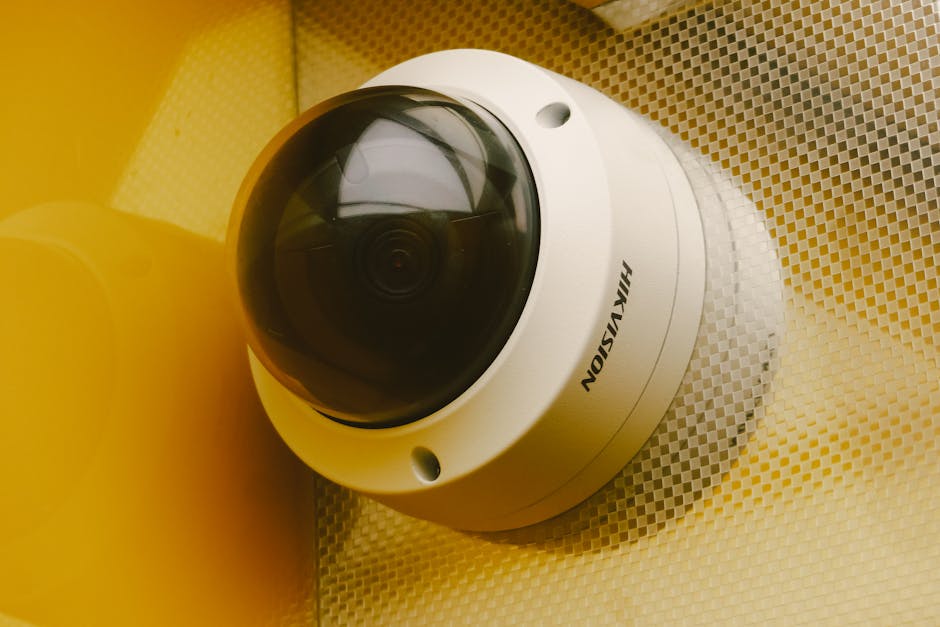Unlock encrypted content
Please enter your SSCE key to initiate on-the-fly decryption.
Decryption key: (Click cancel if you don't have the key)
Copied link to clipboard.
This feature is unavailable for free accounts. Upgrade now and enjoy all Premium benefits.
Go Premium!
This feature is unavailable for free accounts. Upgrade now and enjoy all Premium benefits.
Go Premium!
Please open this page in browser ( Google Chrome or Safari ) to use this feature.
Open In Browser
The Future of Technology: Exploring Biometric Authentication, 5G, and Quantum Computing in Our Lives.
Random related video for this blog.
Copied share link to clipboard.
As we advance into an era defined by rapid technological growth, the integration of innovative solutions into our daily lives becomes increasingly significant. The convergence of biometric authentication, futuristic societies, 5G technology, quantum computing, and genetic engineering is shaping our world, influencing how we interact, secure our data, and manage our environments. This article delves into these advancements, exploring their implications for society and the potential they hold for enhancing our everyday experiences.
Biometric Authentication Benefits
Biometric authentication is revolutionizing security measures across various sectors. Utilizing unique physical characteristics such as fingerprints, facial recognition, and iris patterns, biometric systems offer a level of security that traditional password systems cannot match. For instance, smartphones equipped with fingerprint scanners or facial recognition technology ensure that only authorized users can access sensitive information, enhancing personal security. In futuristic societies, the integration of biometric authentication could streamline numerous processes. Imagine a world where accessing public transportation, entering secured buildings, or even making payments requires nothing more than a glance or a touch. This seamless interaction not only improves efficiency but also reduces the risks associated with lost or stolen credentials. Furthermore, as biometric technologies evolve, they will likely become more accurate and less susceptible to spoofing attempts, making them a preferred choice for identity verification. Case studies highlight the effectiveness of biometric systems in diverse applications. For example, airports around the globe are increasingly adopting biometric technology to expedite passenger processing. By using facial recognition systems, airports can enhance security while reducing wait times, creating a smoother travel experience. As these systems become more widespread, we can anticipate a future where biometric authentication is the norm rather than the exception, fundamentally changing how we perceive security and identity.5G Technology and Its Impact
The rollout of 5G technology represents a significant leap forward inmobile communication, boasting faster speeds and lower latency compared to its predecessors. This advancement opens doors to new applications and services that were previously unimaginable. With 5G, the Internet of Things (IoT) can thrive, connecting millions of devices seamlessly and enabling real-time data exchange. In futuristic societies, the implications of 5G are profound. Smart cities equipped with IoT devices can optimize traffic flow, manage energy consumption, and enhance public safety through interconnected systems. For instance, traffic signals could adapt in real-time based on vehicle flow, reducing congestion and lowering emissions. Moreover, 5G technology enhances telemedicine capabilities, allowing doctors to perform remote surgeries or consultations with minimal delay, improving healthcare accessibility. Furthermore, the impact of 5G extends to the realm of entertainment and media. Streaming high-definition content on multiple devices simultaneously becomes feasible, transforming how we consume media. This technology could also revolutionize virtual and augmented reality experiences, enabling immersive environments for gaming, education, and training. As societies embrace 5G, we can expect a fundamental shift in how we communicate, learn, and interact with our surroundings.
Quantum Computing Revolution
Quantum computing represents a paradigm shift in computational power, leveraging the principles of quantum mechanics to solve complex problems at unprecedented speeds. Unlike traditional computers that use bits as the smallest unit of data, quantum computers utilize qubits, which can exist in multiple states simultaneously. This capability allows quantum computers to tackle problems that would take classical computers thousands of years to solve. In futuristic societies, the potential applications of quantum computing are vast. Industries such as pharmaceuticals could benefit immensely from quantum simulations that accelerate drug discovery processes, leading to faster development of life-saving medications. Similarly, financial institutions could utilize quantum algorithms to optimize trading strategies and manage risk more effectively. Moreover, quantum computing holds the key to enhancing cybersecurity. With the advent of quantum cryptography, data transmission can be made virtually unhackable, providing robust protection against cyber threats. This advancement is particularly crucial as we increasingly rely on digital platforms for communication, commerce, and data sharing. The implications of quantum computing extend beyond mere processing power; they represent a fundamental rethinking of how we approach complex challenges in various fields.Genetic Engineering Innovations
Genetic engineering is transforming the landscape of medicine, agriculture, and biotechnology. By manipulating DNA, scientists can create genetically modified organisms (GMOs) that exhibit desirable traits, such as resistance to pests or enhanced nutritional value. This technology holds the promise of addressing global challenges, including food security and disease prevention. In futuristic societies, genetic engineering could play a pivotal role in personalized medicine. By analyzing an individual's genetic makeup, healthcare providers can tailor treatments to suit specific genetic profiles, increasing the effectiveness of therapies while minimizing side effects. For instance, cancer treatments could be designed based on the genetic characteristics of a patient's tumor, leading to more successful outcomes. Additionally, genetic engineering has the potential to revolutionize agriculture. Crops engineered for drought resistance or improved yield could significantly contribute to feeding the growing global population. As climate change poses challenges to traditional farming practices, these innovations could ensure a stable food supply in the face of adversity. However, the ethical implications of genetic engineering cannot be overlooked. As we gain the ability to manipulate life at the genetic level, society must grapple with questions surrounding consent, safety, and the potential for unintended consequences. Establishing robust regulatory frameworks will be essential to guide the responsible development and application of genetic engineering technologies.Efficient File Sharing and Data Security
As our reliance on digital communication grows, efficient file sharing becomes paramount. With the advent of 5G technology, transferring large files is faster and more efficient than ever. Platforms like FileLu enable users to share files seamlessly, offering solutions for both personal and professional use. The ability to send large files quickly is not just a convenience; it enhances collaboration and productivity in an increasingly connected world. Data security is a critical concern when it comes to file sharing. As sensitive information is exchanged across networks, the need for robust protection measures becomes evident. Solutions such as secure file locking and unlocking, data backup and recovery, and protection for shared links are essential components of a secure file-sharing strategy. Implementing these features ensures that data remains private and accessible only to authorized users. Moreover, the integration of Secure Solo Cipher Encryption (SSCE) provides an additional layer of security for users concerned about data breaches. This encryption method safeguards files during transfer and storage, ensuring that even if data is intercepted, it remains unreadable to unauthorized parties. As more individuals and organizations prioritize data security, platforms that offer comprehensive protection features will become increasingly valuable. The importance of efficient file sharing extends beyond individual users; businesses also rely on these capabilities for collaboration and communication. In a globalized economy, teams often span multiple regions, making effective file sharing crucial for success. By leveraging platforms that prioritize both efficiency and security, organizations can navigate the complexities of remote work and maintain productivity.Data Backup and Recovery Strategies
In an age where data is paramount, having a robust data backup and recovery strategy is essential. Businesses and individuals alike must recognize the importance of safeguarding their digital assets against potential loss due to hardware failure, cyberattacks, or accidental deletion. Implementing a reliable backup solution ensures that critical information is preserved and can be restored when needed. FileLu offers various data backup options, enabling users to securely store their files in the cloud. With plans ranging from 51 GB to 500 TB, individuals can select a solution that fits their needs. The availability of free plans further encourages users to prioritize data backup, ensuring that even those on a budget can protect their valuable information. In addition to traditional backup methods, organizations should consider adopting automated backup solutions. These systems can schedule regular backups, reducing the risk of human error and ensuring that the most recent versions of files are always available. Furthermore, implementing recovery solutions that allow for quick restoration of data can minimize downtime in the event of an incident, keeping businesses operational and efficient. The growing prevalence of ransomware attacks highlights the need for comprehensive data protection strategies. By employing both backup and recovery solutions, organizations can safeguard themselves against the devastating effects of data loss. Investing in these technologies not only protects valuable information but also fosters trust among clients and stakeholders who rely on organizations to maintain data integrity.Secure File Locking and Unlocking
Secure file locking and unlocking is a crucial aspect of data management, particularly in environments where sensitive information is handled. This feature allows users to restrict access to specific files, ensuring that only authorized individuals can view or modify content. In an age where data breaches are becoming increasingly common, implementing secure file locking mechanisms is more important than ever. For example, organizations handling confidential client information must ensure that only designated personnel can access sensitive files. By utilizing secure file locking features, businesses can mitigate the risk of unauthorized access and protect their clients' privacy. This practice not only enhances security but also builds trust with clients who expect their data to be handled responsibly. Moreover, secure file unlocking processes must also be efficient to avoid hindering productivity. Organizations should implement user-friendly systems that allow authorized personnel to access locked files quickly while maintaining security protocols. Striking the right balance between security and accessibility is essential for fostering a productive work environment. As remote work becomes more prevalent, secure file locking and unlocking will play a critical role in maintaining data integrity across distributed teams. By establishing clear protocols and utilizing reliable technologies, organizations can ensure that their data remains protected, regardless of where employees are working.Conclusion: Embracing the Future
The convergence of biometric authentication, 5G technology, quantum computing, genetic engineering, and secure file sharing solutions is reshaping our world. As we embrace these advancements, it is essential to consider their implications for society, security, and our daily lives. The potential for enhanced efficiency, security, and innovation is immense, but it also comes with challenges that must be addressed. By prioritizing data protection and embracing emerging technologies, individuals and organizations can navigate the complexities of the digital landscape. Platforms like FileLu offer secure file sharing and backup solutions, enabling users to harness the benefits of technology while safeguarding their information. The future is bright, and by staying informed and proactive, we can collectively shape a world that leverages technology for the betterment of society.Frequently Asked Questions (FAQs)
Question: What is biometric authentication? Answer:
Biometric authentication uses unique physical characteristics for identity verification, enhancing security.
Question: How does 5G technology impact file sharing? Answer:
5G technology enables faster and more efficient file sharing, improving collaboration and productivity.
Question: What are the benefits of quantum computing? Answer:
Quantum computing offers unprecedented processing power, solving complex problems faster than classical computers.
Question: Why is data backup important? Answer:
Data backup protects against loss due to hardware failure, cyberattacks, or accidental deletion, ensuring data integrity.
Question: How can I securely share files? Answer:
Utilizing secure file sharing platforms with encryption and access controls ensures the safe exchange of sensitive information.
By Amelia Isabella
Email: [email protected]
Related
Cutting-edge Innovations in Autonomous Driving and Scalable Cloud Storage Architecture
July 13, 2023
Read More
<h1>Unlocking the Future: The Power of Quantum Computing, Autonomous Vehicles,...
July 13, 2023
Read More
Streamlined File Sharing Workflows and Cloud Computing Services: Enhancing Efficiency...
July 13, 2023
Read More
Cloud Infrastructure: Enhancing File Management, Internet Security, and Data Storage
July 13, 2023
Read More
Introducing FileLu: Revolutionizing Remote Upload and Secure Document Collaboration
July 13, 2023
Read More
Vehicle Safety Systems: Data Sharing Permissions and Options for Unmanned...
July 13, 2023
Read More
Popular
Latest
The Future of Digital Transformation: Exploring Smart Homes, Efficient File...
November 30, 2025
Read More
Exploring the Benefits of Cloud Storage and Innovative Technologies in...
November 26, 2025
Read More
The Future of Technology: Exploring Biohacking, Space Tourism, and Digital...
November 23, 2025
Read More
The Future of File Sharing: Streamlined Workflows for Photographers and...
November 19, 2025
Read More
Exploring the Intersection of Technology: From Cybersecurity to Augmented Reality...
November 16, 2025
Read More
The Future of File Management: Embracing Edge Computing and Efficient...
November 12, 2025
Read More
The Future of File Sharing: Exploring User-Friendly Solutions and Data...
November 5, 2025
Read More
The Future of Cloud Storage: How FileLu Empowers Creative Professionals...
November 2, 2025
Read More
The Future of Autonomous Technologies: Innovations in Robotics, File Sharing,...
October 29, 2025
Read More
Emerging Technologies Revolutionizing File Management: From Li-Fi to Robust Collaboration...
October 26, 2025
Read More
Emerging Technologies: Exploring the Impact of File Access Auditing, Genetic...
October 19, 2025
Read More
The Future of Data Storage: Exploring Advanced Encryption, Mobile Integration,...
October 5, 2025
Read More
Exploring the Future of Data Management: Security, Efficiency, and Cognitive...
September 28, 2025
Read More
Revolutionizing Data Management: Innovations in Storage, Security, and Sustainable Technology.
September 24, 2025
Read More
















